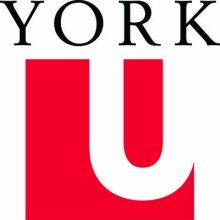When Dezső Horváth became dean of York University’s Schulich School of Business, Margaret Thatcher and Ronald Reagan were in power.
Thirty years later, Dr Horváth is now the world’s longest-serving business school dean.
A lot has changed in business education over that time. One major development has been the evolution of business schools to “relate well to the real world”, Dr Horváth said: they have needed to respond to the explosion of new technology and globalisation, and have had to accept that the old model of corporations focusing only on shareholders and quarterly profits holds less currency today than it did in the past.
Dr Horváth cited his “biggest achievement” in his first years in office at the Canadian school as managing to “get through to the faculty that change is the norm, innovation is the norm”.
Yet even today many business schools still do not understand that they must “innovate on a regular basis” so as not to become “obsolete”, he said.
Institutions in the US and the UK, which still teach the “old capitalist model” based around profits, have “failed to adjust”, while those in northern and central Europe, which pioneered one-year MBA programmes and offer many master’s level business degrees, have been far more innovative, added Dr Horváth, who studied in Sweden.
A significant result is that many US business schools do not teach “responsible enterprise”, he said.
“All your students have to be exposed to this norm. Finance graduates, marketing graduates, accounting graduates – all have to understand that ethics, integrity and environmental, social and political issues matter,” he said, noting that today’s successful firms are much more focused on the “stakeholder” rather than the “shareholder” model.
As well, students now are less interested in high salaries and are keener to secure “interesting jobs” that allow a healthy work-life balance, he said.
Dr Horváth said that when he first employed an ethics professor to teach in his school, it was not to lead a course for students but rather to “teach my faculty about why ethics is important in finance, in marketing”.
“He had a very tough time for years to get the finance professors realising that ethics is important. Now some students don’t even major in finance any more because it [isn’t seen as] ethical,” he said.
While the number of students enrolling in two-year MBA programmes is “slowly but firmly declining” – the Graduate Management Admission Council, which administers the official entrance exam for business schools, recently reported that nearly 60 per cent of two-year MBA courses have seen a drop in applications – the demand for management education in general is not shrinking. Rather, the way in which students want to study business is evolving, said Dr Horváth, adding that one-year master’s degrees in management, for example, continue to record steady growth.
Dr Horváth said that increasingly students who want to work in business will choose to pursue a “well-rounded” undergraduate degree in the liberal arts or sciences before taking a highly specialised one-year business master’s degree.
“Then, after a number of years when they move to a management position, they will do an MBA,” he said. “That’s what we are seeing. That’s the new model.”
Register to continue
Why register?
- Registration is free and only takes a moment
- Once registered, you can read 3 articles a month
- Sign up for our newsletter
Subscribe
Or subscribe for unlimited access to:
- Unlimited access to news, views, insights & reviews
- Digital editions
- Digital access to THE’s university and college rankings analysis
Already registered or a current subscriber?









